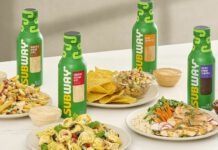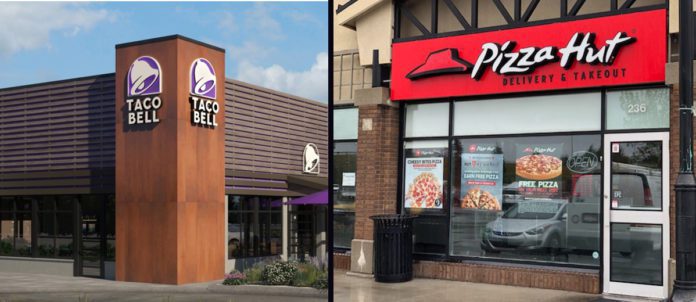While the COVID-19 pandemic battered the Canadian restaurant industry, Redberry Restaurants defied the odds, showcasing exceptional growth in 2021 with the opening of 15 new Burger King locations, multiple Burger King renovations, one new Pizza Hut location, and the addition of a new brand to the portfolio through the acquisition of 14 Taco Bell restaurants.
Redberry’s stellar performance even earned it Burger King’s coveted 2021 Franchisee of the Year award in its largest category (50-plus locations) — the first Canadian company to win the award.
“In 2020 [when COVID first hit], a lot of companies, including Redberry, survived on adrenaline, really thinking [it would be] a situation that would last weeks or months,” says Ken Otto, CEO at Redberry Restaurants. “And, obviously, that didn’t happen.”
Otto says 2021 was about “dealing with our people and the promises we made, and how to keep them going when day after day, week after week, month after month; the news was the same and not getting a lot better. We tried our hardest to communicate that we had a plan; we had a vision of what kind of company we wanted to be; and what kind of culture we wanted to foster. The overarching message was ‘let’s control what we can control.’ We can’t control lockouts or the things we have no knowledge of, like what might be happening next week. What we can control are the promises we made to each other. What we can control is our quality of operations. What we can control is a quality of people that we recruit, hire and promote. This kept people focused on coming to work and saying we made a bunch of promises. Let’s do what we said we would do. And we did it. We focused on taking care of the guests; we focused on speed of service; we focused on running the best brands with our partners in Canada, as evidenced with a Franchisee of the Year award.”
He adds the company also promised it would “build a bunch of restaurants” and despite supply-chain issues, Redberry did just that, announcing development agreements in 2021 to build 50 new Taco Bell locations: five Pizza Hut locations and 168 Burger King units over the next five years. It also entered into an agreement with Burger King to re-model 62 existing units in the next five years. This will bring Redberry’s portfolio to more than 385 locations across five provinces.
Redberry’s “secret sauce” for success has two ingredients, according to Otto.
“The first is long-term thinking. And the second is that the underlying trends that are very bullish for restaurants in Canada, and particularly QSR, never went away.” This includes people’s propensity to eat out, their demand for convenience and the explosive population growth evident in Canada, compared to other parts of the world — especially in Ontario and urban centres. “None of these things went away. They were camouflaged by all the news of the pandemic and of course, during the pandemic, we had to be very focused on the near term. But the fundamentals of restaurant demand in Canada never changed.”
He says Redberry put a lot of resources into thinking about what the company would look like in 2025. And rather than wait until 2025 to invest in those resources, it “invested now. And today, the size of our support teams for development, construction and real estate rival some of the biggest companies in Canada.”
The second ingredient, he shares, was to embrace change, rather than fight it.
“In year three of the pandemic, we continue to learn about new behaviours of guests, new expectations of our people, different ways to build a restaurant and to run the company.”
For example, the use of third-party-delivery aggregators, while more expensive for operators because of the commissions, became a huge source of revenue for Redberry, “and really reflects what I think is a permanent difference in guest behaviour,” says Otto. “So, we embraced it.”
Otto admits Redberry’s business model gave its restaurants an advantage during the pandemic. “When you’re in the business of drive thru, delivery and takeout, it’s a big advantage. And pizza was a perfect fit for when people were at home. [Our] brands provide a great meal for a great price, really fast — these things matter to people.”
Looking beyond the pandemic, Otto says he sees a bright future for foodservice, citing people’s desire to get out and see each other and to spend money out of home.
“For our brands — three very powerful companies, dominant in their space — there’s a lot of white space to grow in Canada, lots of provinces that need more Burger Kings, more Pizza Huts and desperately need more Taco Bells. And we’re going to leverage that with our unique financial structure backed by our private-equity sponsors and partners at City Capital Ventures. We have a long-term view on looking at real estate so our growth projections just accelerate over the next five to 10 years. So, we’re not taking our foot off the gas.”
By Amy Bostock


















